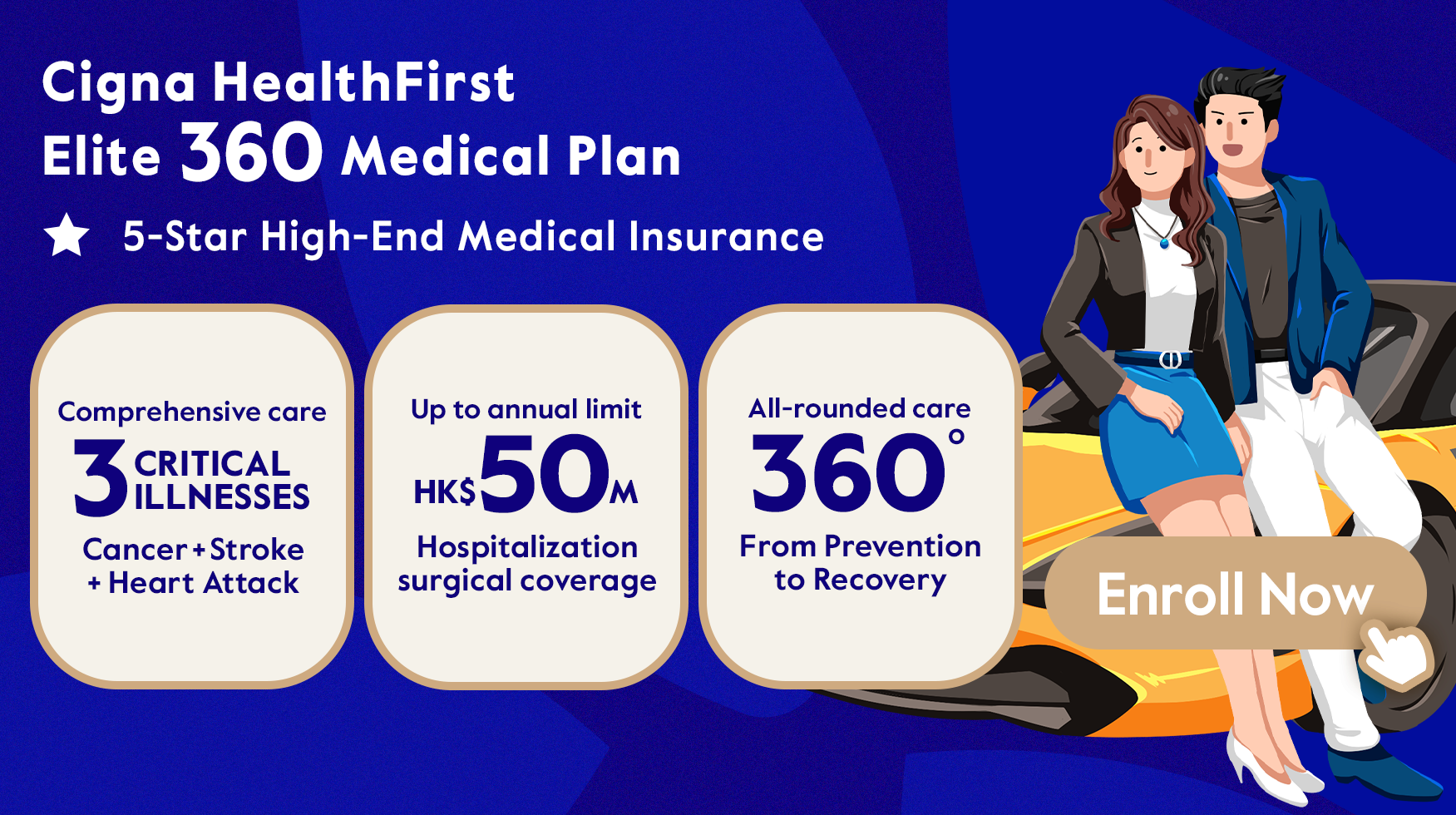Do you experience frequent urination and blood in your urine? These are among the symptoms of early-stage bladder cancer. With similar symptoms of urethritis, bladder cancer is difficult to be detected at early stages. In this article, Cigna Smart Health helps you understand the causes, symptoms, prevention tips and diagnosis of this deadly disease.
What is Bladder Cancer?
The bladder is a hollow organ in the lower abdomen that stores urine. When cell growth inside the bladder’s lining goes wrong and develops malignant tumours, known as bladder cancer.
Bladder cancer is not on the list of 10 most common cancers in Hong Kong, where colon cancer and lung cancer take the top spots). There are about 400 new cases per year, with more male patients than female patients in the ratio of 3:1. It is prevalent among people aged between 55 and 70 years old. Globally, bladder cancer is the tenth most common cancer with 550,000 new cases per year.
What Are the Symptoms of Bladder Cancers?
As mentioned above, the symptoms of early-stage bladder cancer and urethritis are similar. According to Dr Lam Kin Man Justin, a specialist in Urology from Chiron Medical, some patients delay in receiving treatments from Urology specialists as blood in the urine may not be noticeable at first. Some may be falsely diagnosed as a urinary bladder infection (cystitis) or urethritis after multiple consultations.
If you have the following signs, please seek medical advice as early as possible for suitable treatments:
Symptoms of early-stage bladder cancer
- Having to urinate more often than usual
- Pain or burning during urination
- Having trouble urinating or having a weak urine stream
- Having to get up to urinate many times during the night
- Blood in the urine (hematuria)
Bladder cancers that have grown large or have spread to other parts of the body can sometimes cause other symptoms, such as:
Symptoms of advanced bladder cancer
- Being unable to urinate
- Lower back pain on one side
- Loss of appetite and weight loss
- Feeling tired or weak
- Swelling in the feet
- Bone pain or osteomalacia
What Causes Bladder Cancer?
- Smoking: A recent CUHK Medicine Studies’ research highlighted that smoking is the most critical risk factor for bladder cancer. Tobacco causes carcinogenic substances to accumulate in the urine and damage your bladder’s lining, increasing cancer risk. Smokers are at least three times as likely to get cancer as non-smokers.
- Frequent exposure to chemicals: Industrial chemicals called aromatic amines, such as benzidine and beta-naphthylamine, can lead to bladder cancer. Workers engaged in specific industries with regular exposure to these chemicals have a higher risk of cancer. Related industries include rubber, leather, textiles, and paint products as well as printing companies.
- Low fluid consumption: People who drink many fluids, especially water, each day tend to have lower rates of bladder cancer. Drinking more water can empty the bladder more often, keeping chemicals from lingering in their bladder.
- Chronic bladder irritation and infections: Urinary infections, kidney and bladder stones, schistosomiasis, bladder catheters, and other causes of ongoing bladder irritation are linked to bladder cancer.
- Lack of exercises: Compared with people taking part in weekly recreational physical activity, physically inactive ones are 77% more likely to develop bladder cancer. It is suggested performing 75–150 minutes per week of vigorous-intensity aerobic physical activity, or an equivalent combination of moderate- and vigorous-intensity aerobic exercise.
Furthermore, individuals with congenital disabilities of bladder or family history associated with having bladder cancer are at an increased risk for developing this disease.
Costs of Cystoscopy at Private Hospitals and Medical Centres
If you record the above changes in urination or blood in the urine, you should make an appointment and have a urology specialist check-up. To diagnose bladder cancer, doctors may make use of urinalysis, endoscopy or cystoscopy to investigate. With cystoscopy, abnormalities in the urinary system could be discovered by detecting tumours and taking biopsy samples for further tests.
Below are the costs of cystoscopy at private hospitals and medical centres in Hong Kong:
|
Hospital / Medical Centres |
Items |
Fees (HKD)* |
|
Cystoscopy (Flexible) - LA (Local Anesthesia) |
$2,870 |
|
|
Cystoscopy with or without biopsy |
From $16,234 |
|
|
Cystoscopy with or without biopsy |
From $33,726 |
|
|
Cystoscopy (Flexible) - LA (Local Anesthesia) |
$15,350 |
|
|
Cystoscopy |
$9,000 |
|
|
Male Health Check Programs + Endoscopy |
From $2,800 + $6,500 |
*Prices as of 10th Feb 2021.
Note: Some of the plans do not include special procedures. For detailed pricing, please contact the respective hospitals and medical centres.
How to Prevent Bladder Cancer?
Although there is no guaranteed way to prevent bladder cancer, quitting smoking, having a variety of fruits and vegetables, and taking caution around chemicals can lower your risk and improve your conditions. For more details on the prevention tips of bladder cancer, please read: ‘Preventing Bladder Cancer: How Does Mediterranean Diet Help?’
Cigna HealthFirst Elite 360 Medical Plan offers comprehensive and personalized medical coverage across the stage prevention, diagnosis, treatment and recovery, with a range of hospital and surgical benefits, optional insurance benefits with an annual limit of up to HK$50 million, personalized health assessment, three critical illnesses(cancer, stroke and heart attack) all-rounded care and international medical concierge service. A 360-degree total health protection that spans across all the key stages of your health journey. Learn more here.
Sources:


